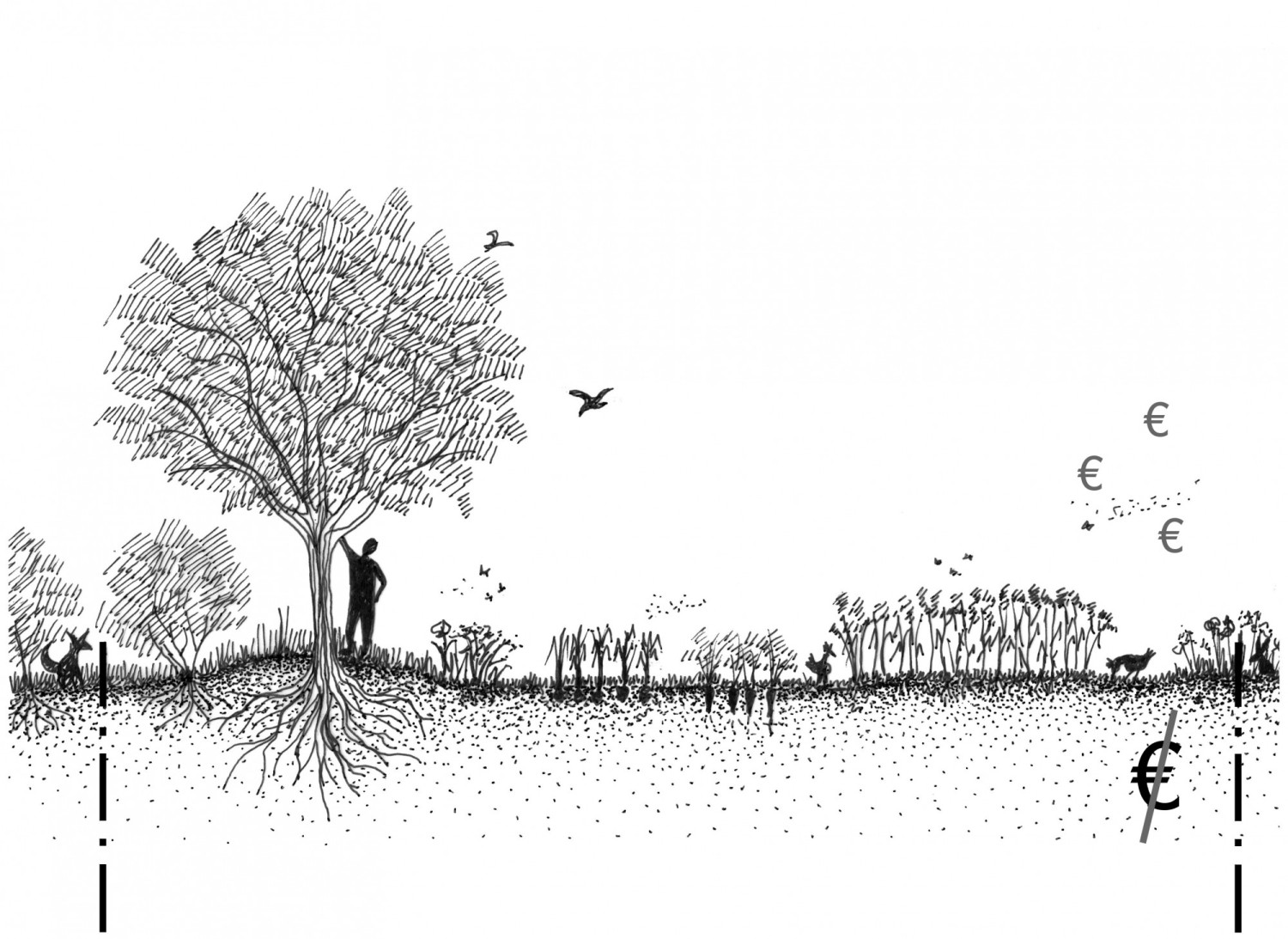Agnès Lapassat
The plot and the commons
The potential of agricultural land, an inalienable common good
The steady disappearance of agricultural land to urbanization raises questions about land ownership in French agriculture. The model of intensive agriculture has led to ever larger farms. Their size and the market value of their produce or land mean that purchase or inheritance costs are very high, leading to debt that hinders development and sometimes even the day-to-day running of farms. This initial debt makes farmers vulnerable to the dictates of the agri-food industry. The resulting professional choices are imposed on society, which regulates them through standards and support mechanisms that attempt to reconcile the interests of farmers with expectations. These expectations have evolved from relative indifference to the rural world to a demand for picturesque landscapes, to which has been added a demand for food and environmental quality. However, these collective demands conflict with the freedom of landowners to use their land as they see fit.
In search of a different agricultural model, citizen initiatives have multiplied. Some—such as the AMAP network and the Terre de Liens movement—raise the question of community control over land as a prerequisite for paradigm change. More specifically, the Terre de Liens movement separates “use” from “ownership” in order to make agricultural land—the soil that feeds us—a common good, while protecting farmers through long-term leases. These alternative discourses place the notion of “commons” and/or “common good” at the heart of their argument. However, it was precisely against this notion of the commons that the current model was initially built, historically based on the physiocrat movement, which sought to liberate individual initiative by favoring full private ownership at the expense of collective feudalism.
This research will analyze the gradual disappearance of the land and social reality of the commons in rural areas, in light of the current resurgence of the notion of the commons and a new meaning of this notion in a new land reality. The research is based on a comparison of past and present discourses on the question of the commons, on the observation of the evolution of private property through cadastral analysis and its relationship with the experiments in the dissociation of use and ownership carried out by the Terre de Liens movement in three territories representative of the diversity of the French landscape.
- PhD framework
◖ Dissertation supervisor
Paul Landauer (HDR)
OCS laboratory, Ensa Paris-Est
◖ PhD framework
2019-in progress
Thesis funded by Caisse des dépôts patronage for research in architecture and landscape (2019-2022)
◖ Research environment
OCS Laboratory
AUSser joint research unit
Gustave Eiffel University
